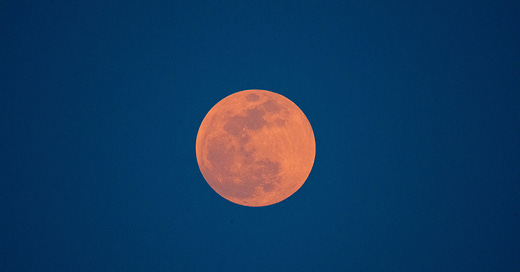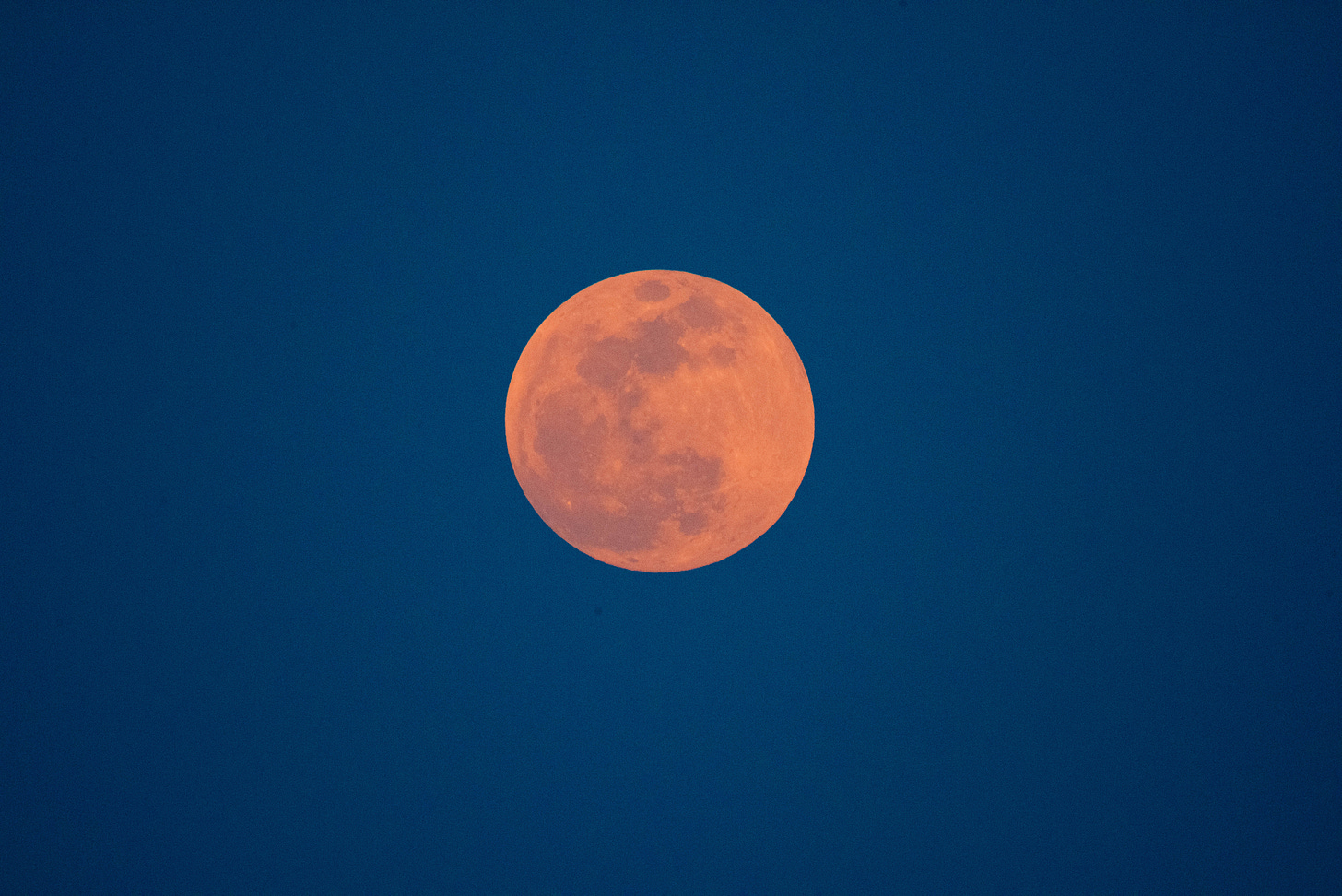Are you from a rural community or the American South? Share your story with us to be published in an upcoming newsletter!
Hi Folks,
Saturday night, as I was driving home through the trees, my car rolled down a hill and emerged to a view of the full moon, vast and bright overhead. It was just beginning to rise and it looked massive up there, orange with the glow of lingering daylight. The kind of view that takes your breath away completely. Every night the moon rises but it does not always rise like this. And when I see it like this I can’t help but think that there must be other mysteries out there in the world, other things that I am unable to explain or will away. There are things that I have wanted desperately to believe in all my life and that adulthood has drawn me away from and then pulled me back to, things that feel hidden and shrouded just beyond that which is known to us. All my life I have been fascinated by magic, religion, witchcraft. I have been unable to look away from those who believe deeply in something, anything. Sometimes I wonder if I have ever believed truly in anything at all. Sometimes I wonder if any of us do.
This time last year, I began to delve deeply into the mysteries and folklore of the American South as I researched for the novel I am currently writing, one rooted deeply in these myths and legends. I always felt drawn to Southern Gothicism, but it was in the course of writing this story that I began to understand just how deeply that pull goes in me, and just how intertwined belief is in these places. Whether it takes the form of religion or witchcraft, belief is central to the Southern region, and it permeates everything here. And I think that one of the reasons I felt so called to return home every time I moved away is that I want more than anything to believe in something. To feel my life is guided, purposeful. I want to reclaim the feeling of wonderment and awe that I have when I watch the moon rise and insert it into my everyday life. I want to stop feeling as though I am living the same day on repeat, the same week on repeat, the same life year after year. I think many of us can relate to the increased looping of time, and I think many of us find ourselves struggling for a way out.
Five years ago, back when I had first moved to New York City, I finished Alex Mar’s Witches of America in a single sitting while waiting on a delayed flight home out of LGA. There are mixed reactions to the book, but personally I found I could relate to many of Mar’s sentiments. The following especially stood out:
“Because I envy them, the believers. They have guidance, they have clarity; their days have structure and meaning. And, quietly, for a long time, I’ve coveted these things— after all, they’re what most of us want badly, regardless of whether we consider ourselves lapsed Catholics or born-agains or strident atheists. Morpheus has perfect conviction in a world that I do not understand, and I feel compelled to step inside her belief. When I put my work aside, I have to admit that I am searching- hopefully, and with great reservation- for proof of something larger, whatever its name.”
I have realized in the last year that I too am searching in my work for that proof of something larger. That everything I write— whether rooted in folklore traditions or empathy studies or ecocriticism— revolves around the search for something beyond what I can see, something beyond what I can feel, something that proves there is purpose in all this suffering, all this heartbreak, all this anguish and torment. That the ways in which I have fought myself to continue creatively, to continue to choose hope and happiness over the pull in me towards depression and isolation— that these choices matter, and will lead me to some greater meaning. That they will give me something to believe in. When I consider the opposite, that all of this is for naught, I wonder how to go on. For better or for worse, I am the kind of person who needs something to believe in, and not just the superficial, scratching the surface level. I am at the point in my life— and with everything— where if it isn’t deep, I don’t want it.
Earlier this morning, as I sat in my new classroom at my new school for my second year of teaching artistry, I was reading David Foster Wallace’s old New Yorker essay, “All That”, in which he discusses: a toy truck, magic, religion, parental relationships, and the pull to reverence. A large part of the work also discusses belief and the idea of “the real”. I have always found it difficult to conceptualize what is real, to wrap my head around how I interpret substance (a recent newsletter focused heavily on this idea in relation to suburbia and rural communities). Who am I to say that something is not real if I am not one to see it? Who am I to determine that my way of seeing the world is the only way? (In retrospect, I should also note here that I was an adolescent obsessed with psychological films such as Shutter Island and Inception, and I was also someone equally fascinated and afraid of the perception of madness. Sometimes I was afraid that like so many artists I would slip into it; other times I was convinced it was a qualification of true creativity. Even as an adult, I seem unable to get away from this pull— the novel I am currently finishing focuses on a woman drawn to a cult-like group that claims to follow a man who appears to them in their dreams…)
Anyway, this idea of reality and belief does also feel to me to be interconnected to empathy. If I go around and imagine that there is only one way to view the world, then I am closing myself off to the unique perspectives and viewpoints of others; I am locking myself in my own reality, and that isn’t good for any of us. In both empathy work and the study of belief, there is a moment that is discussed that is a type of transcendence, that initial realization where you finally understand both how important and how meaningless your individual existence is to the world, how so little, in the end, is really about you, and it is that very realization that allows you to actually connect with other people and things in small, intricate, meaningful ways. Likewise, this concept appears often in spiritual circles: to attract anything, you have to first give up wanting it. You have to find completion all on your own. In the essay I earlier referred to, Wallace ends by imagining magic as a feeling of happiness that is too intense to bear, one that can be reached in the most mundane and regular of circumstances: lying on the couch, a conversation with a family member, the feeling of your father’s knees beneath you as you watch an old war film. Those moments of happiness become moments of reality which become moments of magic. And perhaps that is the secret to all of it: that the moments we feel most full of belief are the moments we feel the most real.
It is late as I write this and I am sitting by candlelight, watching the moon out the window. This morning, as I drove down the fog-covered hills to school in the blue darkness of early morning, I watched the moon lighten and disappear, the sky a pale wash against the rolling trees. It was as beautiful then as it is now, and I felt at peace, watching the world wake up, feeling something wake up within me. I think I would like to harness that feeling for the rest of my life.
Your prompt this week is to write about a moment that made you feel real. It can be happy or sad. It can be real or imagined. Who am I to say.
See y’all Friday,
Spencer
This week’s song is Jupiter 4 by Sharon Van Etten. I love this song, it’s soundtracked most of the writing I’ve done over the last year, and some of the moments that have made me feel the most real have taken place with this song playing in the background.






